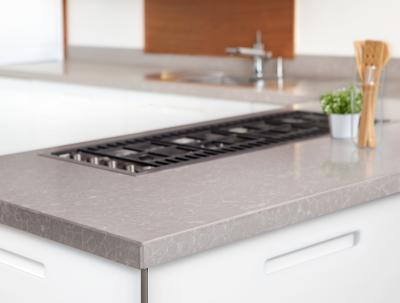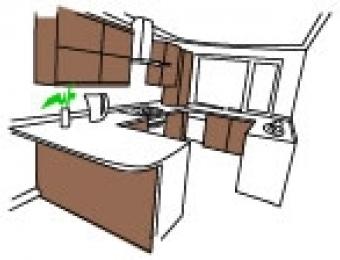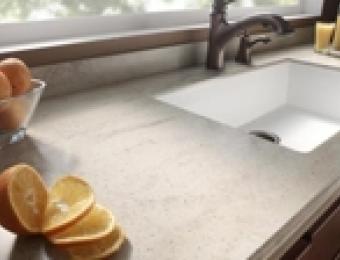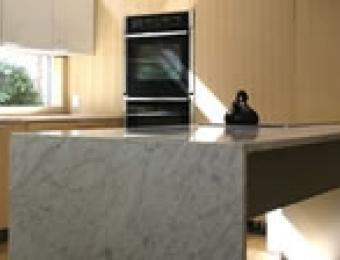
What are engineered stone benchtops?
Engineered stone benchtops go by many names - depending on the supplier or manufacturer they may also be referred to as composite stone benchtops, reconstituted stone benchtops or simply quartz benchtops. Engineered stone benchtops are a type of man-made material constructed using a combination of stone (typically quartz), glass or shells and a silicon or resin bonding agent. These materials normally consist of about 93% powdered or crushed stone, and about 7% resin or bonding agent - the exact composition depends on the particular product and manufacturer.
Engineered stone provides a very attractive, hard, durable surface very much like natural stone. Behind plastic laminates, composite stone benches are the most popular of the man-made materials used for kitchen benches.
What are the properties of engineered stone benchtops?
Engineered stone benchtops offer a great deal of freedom in terms of their looks, and can be made to look and feel very much like more expensive natural stone alternatives. They're considerably less porous than granite, marble and many other kinds of natural stone, and as a result they require less maintenance and are very hygienic.
Because they're made mostly from crushed rock rather than single slabs, composite stone benchtops also have a far smaller environmental footprint than natural stone - and for the same reason they're usually considerably cheaper. Likewise, because they're engineered, it's possible to guarantee consistency and repeatability as far as colour and pattern are concerned.
Composite stone is quite tough, but it may chip around the edges if it's not treated with a bit of care. These chips can be repaired though, although if you're looking carefully you'll probably be able to see where repairs have been made. Likewise, engineered stone's reasonably resistant to heat however it's not a good idea to put hot pots and pans directly onto engineered stone surfaces, as it may mark or crack them.
Engineered stone benchtops are normally imported as big slabs, and are available in a wide range of edge profile thicknesses and textures.
|
Advantages
|
Disadvantages
|





